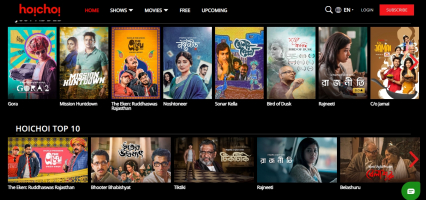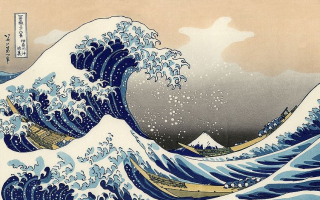Top 4 Vedic Knowledge to Alleviate Suffering
Our global community is hurting on numerous levels during this pandemic. Even if we can go about our daily lives and are not directly touched by the virus, the ... read more...stories, photographs, and numbers are unsettling. This is an attempt to outline what we can utilize from the toolbox of Yoga practices, Vedanta philosophy and tradition, Ayurveda Vedic healing science, and Jyotish, the science of karma and timing. These skills can be used for any condition, whether you are a medical responder from New York, a woman with children out of school who needs to be cared for at home, or a regular Yoga student who is already on the path of self-healing and self-transformation. Suffering is inherent in our human state (dukha). Yoga, Vedanta, Ayurveda, and Jyotish are the four systems that comprise Vedic Knowledge. Vedic Knowledge is derived from the Vedas, mankind's oldest scripture, and provides a universal perspective on life, from physical to psychological well-being to unleashing our highest creativity and deepest awareness. It is important for us today, in these extraordinary times, to draw inspiration from Vedic knowledge in order to understand where we came from, where we are now, and where we are heading. Let's see in details how these Vedic knowledge can help to alleviate suffering.
-
How may Jyotish, or the science of light (Vedic astrology), assist us in alleviating suffering?
Jyotish or Vedic astrology is a science that seeks to shed insight on the karmas that manifest as distinct complicated situations. Vedic astrology would assist us in seeing the relationships between areas of our lives, detachment, and patience in our efforts to be rid of suffering conditions.
- Everything in our lives is an expression of our karmas. It does not reflect the reality about ourselves. The more distant you are from identification with components of our karmas, the better. Seeing the 12 areas of our karmas as outlined in Jyotish helps us to be aware of our purpose and tendencies (1. our birth in this body and our general intention in life, our life force and overall character, 2. our resources and support system, 3. our communications and free will, 4. our heart and emotions, and 5. our education and intelligence, 6. Our flaws, 7. Our relationship, 8. Our inner psychology, 9. Our dharma and faith, 10. Our career and contribution, 11. Our gains, and 12. Our losses.)
- Karmas, while thought to be real and unpleasant, change naturally. The dashas and transit system in Vedic astrology tell us about the cyclical nature of the development of karmas.
- We are not our ideas or our likes and dislikes: what you believe becomes who you are, and what you see is who you are. Because our minds are so distinct, we don't live in the same reality. We can comprehend people's mindsets so that we don't suffer from unfulfilled expectations, and we can adjust and accept individuals for who they are, removing instances of suffering from relationships in our lives.
For instance, the mind's tendency to be alone, thinking in one's head and not engaging or cooperating with others, resulting in isolation and loneliness (moon alone), the mind's disposition to be perfectionistic (moon mars Saturn), pessimistic and depressed (moon Saturn), fast and angry (moon mars), unsupported (hemmed in between malefics), optimistic open and dharmic (moon Jupiter), fearful and desirous (Rahu moon), edgy and spacy (moon Ketu). There's a dark moon, a dazzling moon, a weak moon, and a moon that's overly emotional.
- The location of the sun in Vedic astrology reveals our ego. Our ego causes sorrow, which is why we have difficulties asserting ourselves or have too much assertiveness when we have too much reliance on connections and too much independence. The sun also symbolizes the government and our interaction with those in positions of power.
- Suffering results from a lack of understanding of our purpose and motivation. Vedic astrology can reveal our underlying motivations for coming into this life, as well as why we sometimes feel as though we are not living the life we were born to live. It reveals the soul's motivation and how the soul intends to work out the karmas of this existence. It identifies our areas of strength and maturity, as well as our areas of weakness and future development.
- Suffering is the result of unresolved inner conflicts and unfulfilled life goals. Jyotish provides information about how to overcome old inclinations.
- When properly understood, Vedic astrology can assist us in being more conscious of our journey and avoiding suffering as a result of making the same error. It demonstrates that our fate is in our hands, and that, contrary to common assumption, we can always do something to improve our condition, that nothing is hopeless, and that life is harsh but fleeting.
- So that we can actively progress in our motivation, Vedic astrology reveals to us our inner motivation, kama (enjoyment), artha (wealth), dharma (righteousness), and moksha (liberation).
- The time of the skies is revealed by Vedic astrology. It's the study of time.
Today, for example, is Akshaya Titriya, which is an auspicious day to begin a spiritual enterprise because the sun and moon are both exalted.
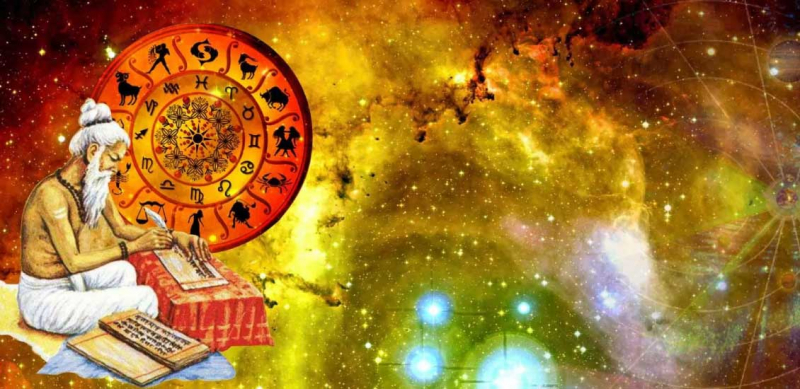
Astro Guru Vinod Ji 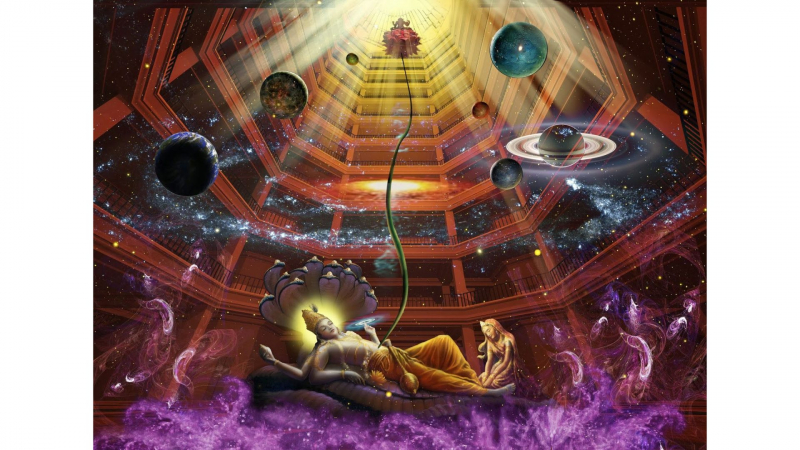
ShivaShakti School of Yoga -
The science of life is known as Ayurveda. It is an Indian traditional medicine system based on the notion of the five elements. Ayurveda teaches us to respect the knowledge that is behind the natural processes that manifest in our health and well-being. It keeps us healthy by teaching us how to live in harmony with our bodies and the environment.
To remain healthy, we must manage our doshas, according to Ayurveda. (Vata, Pitta, and Kapha are biological humors that fundamentally represent the powers of air, fire, and water.) They aren't flawless, and they are always evolving. Doshas are the primary cause of sickness.
Ayurveda teaches us the virtues of balance, understanding our constitution, and balance between the doshas, between Vata's energy of action and movement (ether and air), Pitta's energy of transformation, conversion, and metabolism (fire and water), and Kapha's energy of construction, lubrication, and nourishment (fire and water) (water and earth).
Excess doshas are disease-causing variables, and Ayurveda attempts to reduce them. Ayurveda addresses the core cause of our imbalance, focusing on treating the dosha that causes the sickness rather than just the disease itself.
Ayurveda taught us to recognize our mind-body type's strengths and weaknesses and live a healthy lifestyle in accordance.
Wellness is the result of a change in lifestyle. A clinician is essential for acute diseases. Changing one's way of life (diet, sleep, sensual inputs, relaxation, and activity, for example) might improve one's quality of life and lead to health and well-being rather than disease. It is critical that we understand how to prepare healthy vegetarian meals.
Ayurveda helps us regulate the subtle energies of Prana, Tejas, and Ojas, which are the Master forms of Vata, Pitta, and Kapha on a deeper level. Prana may be enhanced by pranayama, while Tejas can be increased through mantra, focus, and intuition. Ojas is the energy of sustenance, which can be boosted by eating a well-balanced vegetarian diet, using ojas-boosting herbs, getting enough rest and relaxation, and cultivating faith, dedication, compassion, and endurance, as well as reaching the inner Soma or nectar of bliss. As a result, it is said that the world lacks ojas, resulting in the occurrence of the coronavirus, due to a lack of sattvic (pure, natural, and wholesome) food, a lack of rest and relaxation, a lack of faith, devotion, and endurance due to excessive rajasic activity, and a lack of connection to the higher Self, which brings happiness and contentment. Many people see the shelter at home directive as permission to slow down and rest, meditate, and reconnect with our happy selves.
Ayurveda encourages us to live in harmony with nature by teaching us to live according to the seasons and the time of day. We learn to stick to our daily routines and change our lives to the changing times.
Finally, Ayurveda covers not only healthy nutrition, but also the interaction between food and excretion, as well as the importance of relaxation and cleansing for the body. The globe is purifying itself by slowing down.

sandalwood.com.vn 
LEEP.APP -
What Yogic techniques and ideas can we apply on a regular basis, as well as in an emergency?
We learn through Yoga science that the body and mind are our instruments, not ourselves. We take good care of our cars, but we are not cars. We have complete control over our automobiles. The physical body is not designed to last indefinitely. Birth, growth, degradation, and death are its functions. This viewpoint considerably reduces our pain caused by attachment to and identification with the body.
We also understand that the mind is merely our tool, and that what we feel, our character, and personality are not our true selves. This enables us to navigate the mind rather than succumb to it. Although our feelings can be overwhelming, we are not our feelings.
We learned how our inner instrument operates and how to use our higher ability of the intellect to discern the best course of action for personal growth and self-realization. We learned to establish our power of choice after realizing that we are neither our senses nor our subconscious habits.
Yoga taught us how to flow our prana and clear any blockages that might cause stress and sickness. When we practice asanas correctly, we move our prana and promote well-being, especially when we are relaxed, focused, and breathing properly.
According to Yoga scripture, we may destroy ailments and live a vibrant life by expanding our prana (life energy) and purifying our subtle channels through pranayama.
The most essential teaching of Yoga is the understanding of how to improve our vibrational wavelength through pranayama and how this immediately alleviates pain through a change in our thinking quality in our mind.
Another priceless Yoga principle is that of concentration. How we can be rid of misery simply by focusing our minds. This allows the tranquil, joyous self to be revealed.
We have a plan to guide our efforts. We aim to avoid tamas (inertia, pulling down), calm down rajas (activity, egoism, passion), and feed sattwa in all facets of our lives (purity, balance, wisdom, harmony). The teaching of the gunas is essential in guiding both our external and inner lives.
The four paths of Yoga instruction provide the deeper teaching of Yoga. We address the source of our miseries by altering our Karma through Karma Yoga, sublimating our wants and emotions through Bhakti Yoga, directing our minds through meditation (Raja Yoga), and finally separating from the false self to embrace the Truth within. In other words, healthcare workers can accept the lessons of life and death internally, do their duty and let go of expectations and results, keep focusing and meditating while in action, and know that there is another picture than this one, a level of beauty, of perfection untouched by anything, that resides right in our heart.
Relax into God's love and care, detach from the dramas, breathe into the pain, exhale and let go, surrender to God's will and let go of one's own will, when overwhelmed.

Vinmec 
ArmyHausVinmec -
How does Vedanta philosophy assist us in overcoming our suffering?
All misery, according to Vedanta philosophy, stems from our forgetfulness of Self. It teaches us about our immortal spirit's nature and how to realize it in our daily lives. It explains how our illusions and misperceptions change over time. It emphasizes our ultimate consciousness of oneness. It draws our attention to a perfect truth that we sense in our hearts.
We learn to shift our thinking perspective and see things in new ways. Life and death are both real, but they are also unreal; they are two sides of the same truth that exists beyond life and death. We learn to think rightly about ourselves and reality by practicing Vedanta and learning to distinguish between the real and unreal, the self and the not-self. To discover ourselves, we must learn to lose ourselves. The ego is a construct that can be a hindrance. Vedanta philosophy advises us to detach from who we think we are, to remember our eternal Self, and avoid becoming caught up in the illusory. In essence, all changes are unreal. It is only an appearance created by our minds. We learn to take a step back and look at the larger picture, and we stop taking things personally. We have no idea who we are, but we do know who we are not. What remains once we know who we are not is the truth. We can be ourselves in the everlasting present by disconnecting from our thoughts, which operate in the past and future.
Happiness does not exist in this world; instead, look within to discover the Atman, the Self that is Sat chit Ananda happiness absolute. We do our duty, fulfill our karmas, and do our best, but all at the same time. Recognize that there is no such thing as perfection or fulfillment in this world.
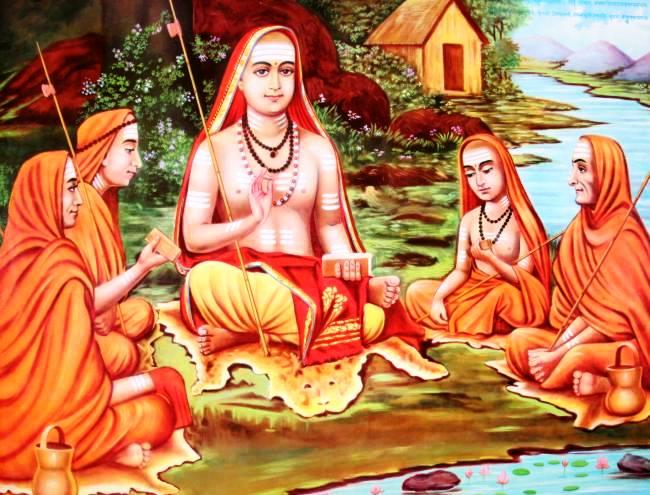
Yoga Vidya Vedanta New York













